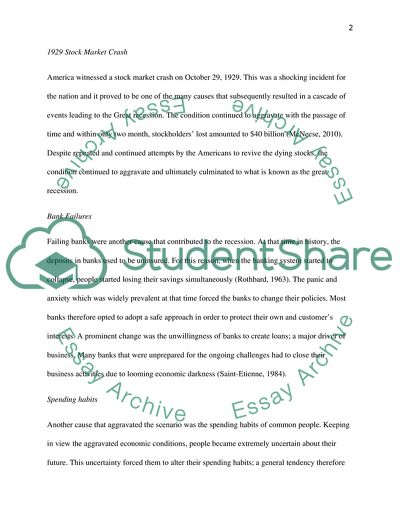Cite this document
(To What Extent Did the Causes of the Great Depression Originate within Coursework Example | Topics and Well Written Essays - 1500 words - 1, n.d.)
To What Extent Did the Causes of the Great Depression Originate within Coursework Example | Topics and Well Written Essays - 1500 words - 1. https://studentshare.org/macro-microeconomics/1853644-the-british-and-global-economy
To What Extent Did the Causes of the Great Depression Originate within Coursework Example | Topics and Well Written Essays - 1500 words - 1. https://studentshare.org/macro-microeconomics/1853644-the-british-and-global-economy
(To What Extent Did the Causes of the Great Depression Originate Within Coursework Example | Topics and Well Written Essays - 1500 Words - 1)
To What Extent Did the Causes of the Great Depression Originate Within Coursework Example | Topics and Well Written Essays - 1500 Words - 1. https://studentshare.org/macro-microeconomics/1853644-the-british-and-global-economy.
To What Extent Did the Causes of the Great Depression Originate Within Coursework Example | Topics and Well Written Essays - 1500 Words - 1. https://studentshare.org/macro-microeconomics/1853644-the-british-and-global-economy.
“To What Extent Did the Causes of the Great Depression Originate Within Coursework Example | Topics and Well Written Essays - 1500 Words - 1”. https://studentshare.org/macro-microeconomics/1853644-the-british-and-global-economy.


